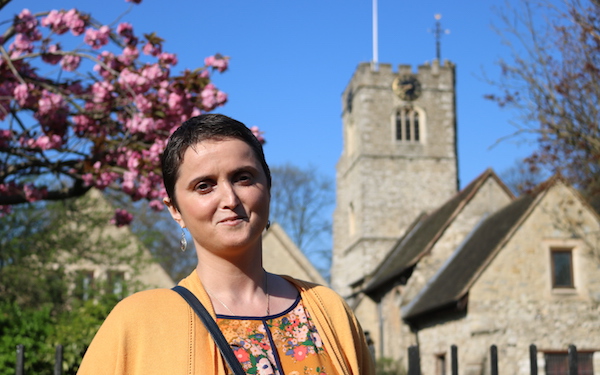In 2015 senior social worker Mirela Ciorcan was beginning to think her career was over.
It was a far cry from the hope Mirela felt five years earlier when she left Romania to continue her social work career in Britain.
“I qualified in 2005 and worked in children’s services in the north of Romania,” she says. “It was a very young and vibrant university city but the lack of resources means it’s very difficult to be social worker in Romania. You need to be rich to do it. My salary was £100 a month but my rent was £80.”
Then one day she opened the local newspaper and there was an advert from a London borough seeking child protection social workers.
‘I felt unemployable’
“I wasn’t planning to go to the UK but applied online,” she says. “When I was selected for interview I was surprised but I bought my ticket and came just like you would for any job. It wasn’t just about the salary, it was the chance to learn and be able to help people.”
But after a couple of jobs with London boroughs, a health condition caused Mirela to lose mobility in her fingers. Unable to type she had to turn to voice recognition software to carry out her assessments.
As the condition worsened, Mirela decided she needed time out from work: “It was my decision to take a break – I wanted to focus for a time on improving my health.”
It was supposed to be a temporary break but on trying to return to the profession she found her disability had seemingly become a career killer. “I stayed at home for a year and a half. Agencies would say, ‘You have been off work for too long’. I felt almost unemployable. But I was determined not to accept that because I knew it wasn’t the case.”
Everyone was so supportive
Then she applied to join the London Borough of Barking and Dagenham.
“I went for the job and passed the interview but my doctor told them he thought I would struggle to do assessments,” she says. “That must have made it a difficult decision for my manager but she was amazing. She said yes.”
That support continued from the moment Mirela arrived at the council. “My service manager and HR were flexible and understanding. They made the adjustments I needed. My disability wasn’t treated as a barrier – everyone was so supportive. Out of the boroughs I have worked for, Barking and Dagenham has easily been the best experience.”
But Barking and Dagenham offered more than support with disability, she says. It was also a great place to be a social worker.
Attractive package
“It’s an attractive package and the caseloads here are such that you get the time to talk and think about your practice,” she says. “I work in the Prevent team and what we deal with is very sensitive and if you have a high caseload you don’t get the time you need to reflect on the issues.”
The council’s commitment to developing the careers of its social workers was also a pleasant surprise. “One thing I was surprised by when I joined was hearing that a social worker had gone to another manager to ask if they had any vacancies and if she could transfer to that team, and it was ok,” she says.
“They really give social workers the opportunity to upskill and try new things. All the supervision here is about helping you develop and learn. You don’t have to do the same job for 10 years.”
Managers who have faith in you
“Back when I worked as a social worker in Romania I had a manager who sat on the same chair for 20 years,” says Mirela. “My generation don’t want that. We are not those people. We want variety, we want interesting challenges. And to get that we need managers who have faith in you and that’s what I get here in Barking and Dagenham.”
It’s been two years since Mirela joined Barking and Dagenham and, she says, there is no shortage of the variety she craves.
“Another thing I like is that our team is so varied,” she says. “My manager is Spanish and my colleagues are Angolan, Pakistani and White British. There are no two people from the same culture here – it’s such a rich and diverse workforce. We reflect the community we serve.”




 Facebook
Facebook X
X LinkedIn
LinkedIn Instagram
Instagram